-
main-collection-product-grid
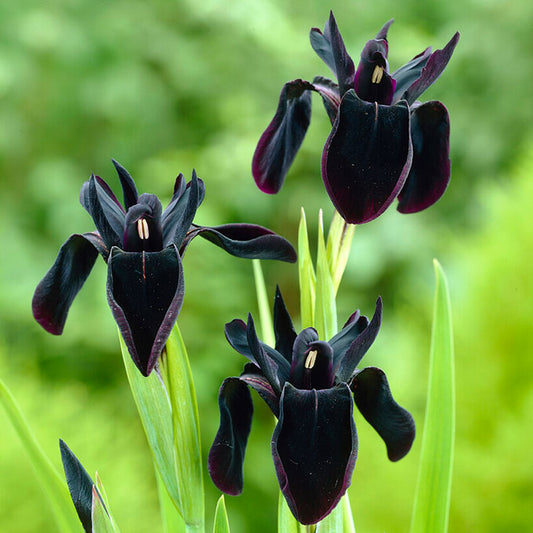
Siberian Iris Roots - Black Flowered
The closest thing to true black in the cut flower gardenSiberian Iris Roots - Black Flowered
The closest thing to true black in the cut flower gardenRegular price As Low As $15.79Regular priceUnit price per -
main-collection-product-grid
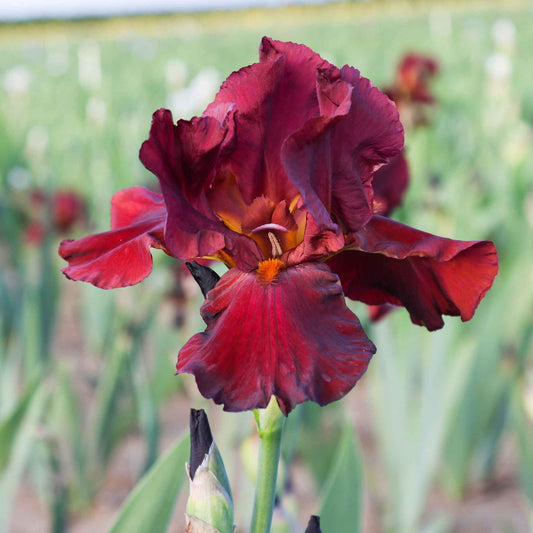
Re-Blooming Bearded Iris - Bernice's Legacy
A rarer color for irises, sure to attract attention in the gardenOut of StockRe-Blooming Bearded Iris - Bernice's Legacy
A rarer color for irises, sure to attract attention in the gardenRegular price As Low As $13.69Regular priceUnit price per -
main-collection-product-grid
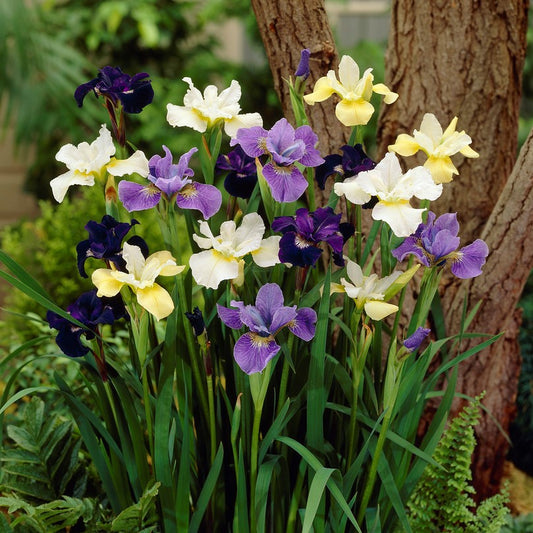
Siberian Iris Roots - Mix
This delightful mix of yellows and purples is the most cold-hardy irisesSiberian Iris Roots - Mix
This delightful mix of yellows and purples is the most cold-hardy irisesRegular price As Low As $15.79Regular priceUnit price per -
main-collection-product-grid
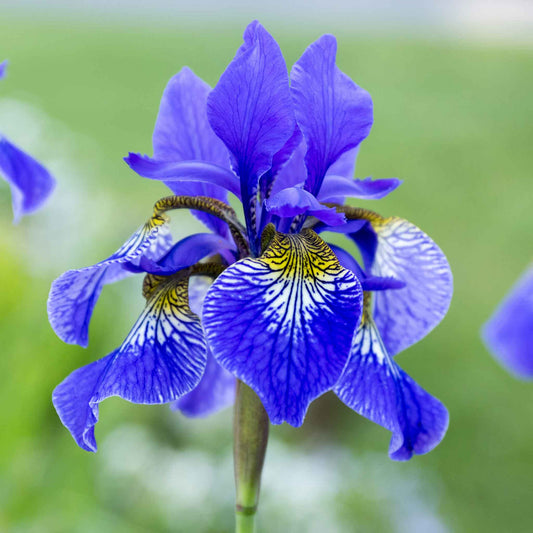
Siberian Iris Roots - Silver Edge
True to its name, these petals appear rimmed in precious metalSiberian Iris Roots - Silver Edge
True to its name, these petals appear rimmed in precious metalRegular price As Low As $13.69Regular priceUnit price per -
main-collection-product-grid
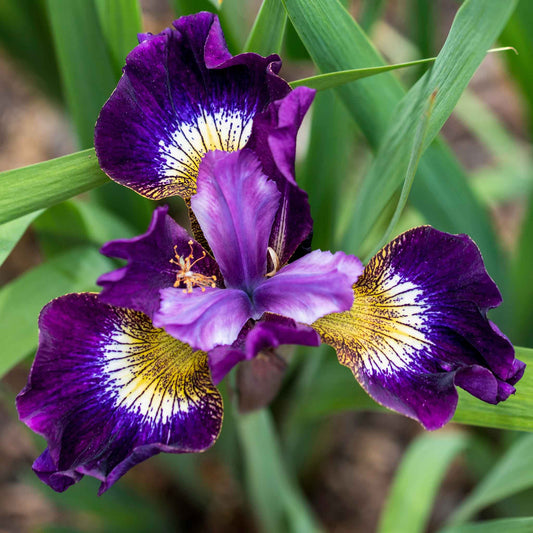
Siberian Iris Roots - Contrast In Styles
These multicolored petals are as intricately designed as pansy facesSiberian Iris Roots - Contrast In Styles
These multicolored petals are as intricately designed as pansy facesRegular price As Low As $13.69Regular priceUnit price per -
main-collection-product-grid
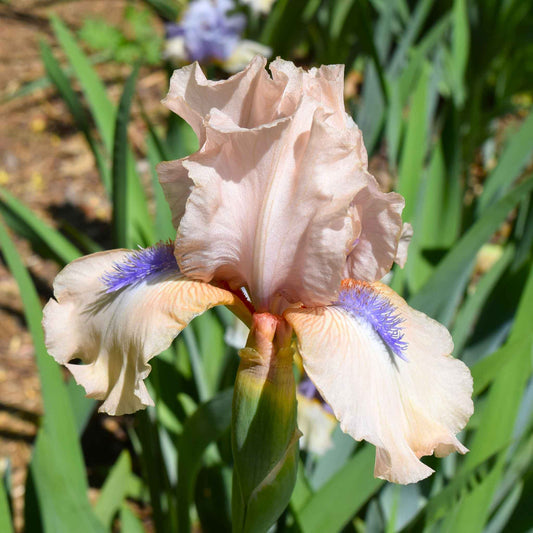
Re-Blooming Bearded Iris - Concertina
Rose undertones meld with violet beards in perfect harmonySaleRe-Blooming Bearded Iris - Concertina
Rose undertones meld with violet beards in perfect harmonyRegular price As Low As $4.11Regular priceUnit price per$13.69Sale price As Low As $4.11Sale -
main-collection-product-grid
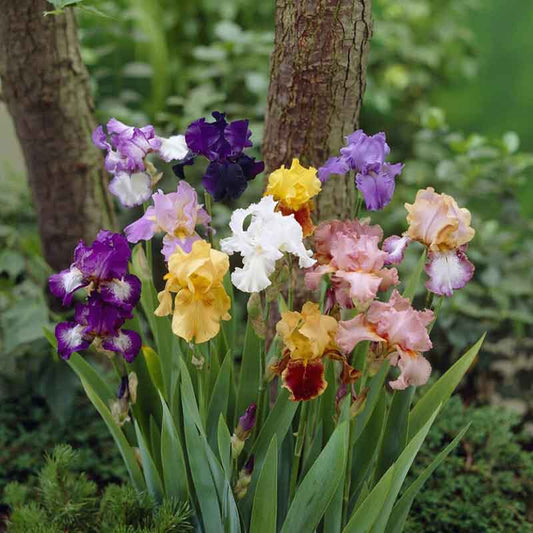
Re-Blooming Bearded Iris - Mix
All the essential reblooming irises in one easy-to-grow collectionSaleRe-Blooming Bearded Iris - Mix
All the essential reblooming irises in one easy-to-grow collectionRegular price As Low As $15.75Regular priceUnit price per$52.49Sale price As Low As $15.75Sale -
main-collection-product-grid
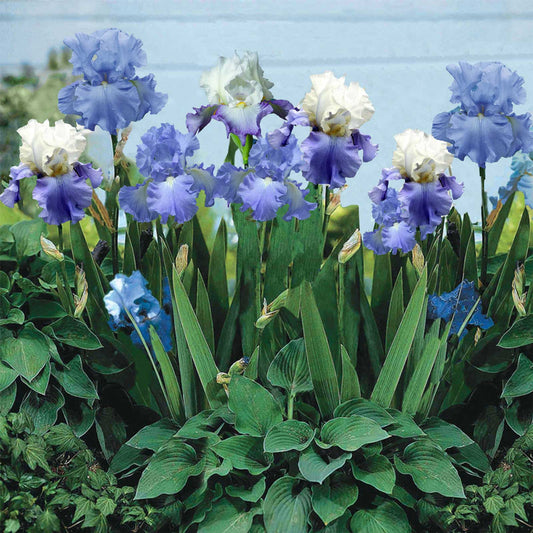
Re-Blooming Bearded Iris - Blue Mix
A best-selling mix, these nectar-rich blue blooms are a favorite with beesSaleRe-Blooming Bearded Iris - Blue Mix
A best-selling mix, these nectar-rich blue blooms are a favorite with beesRegular price As Low As $15.75Regular priceUnit price per$52.49Sale price As Low As $15.75Sale -
main-collection-product-grid
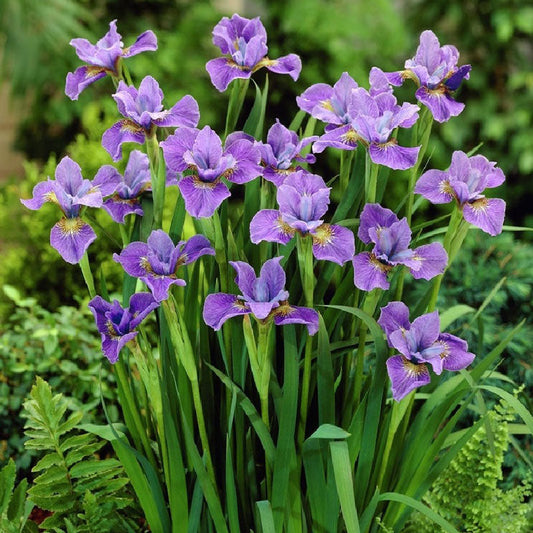
Siberian Iris Roots - Purple
These easy-to-grow irises are quick to naturalizeSiberian Iris Roots - Purple
These easy-to-grow irises are quick to naturalizeRegular price As Low As $13.69Regular priceUnit price per -
main-collection-product-grid

Siberian Iris Roots - Concord Crush
Wows you with an abundance of petalsSiberian Iris Roots - Concord Crush
Wows you with an abundance of petalsRegular price As Low As $15.79Regular priceUnit price per -
main-collection-product-grid

Siberian Iris Roots - Black Joker
Our most intriguing color combinationOut of StockSiberian Iris Roots - Black Joker
Our most intriguing color combinationRegular price As Low As $15.79Regular priceUnit price per -
main-collection-product-grid
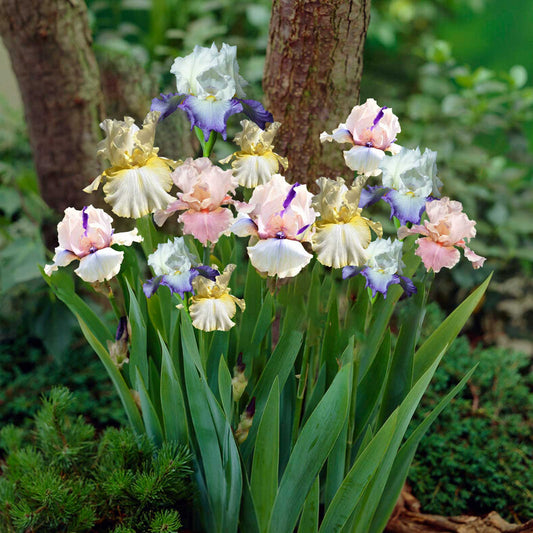
Re-Blooming Bearded Iris - Pastel Mix
The only collection of reblooming bearded irises you'll ever needSaleRe-Blooming Bearded Iris - Pastel Mix
The only collection of reblooming bearded irises you'll ever needRegular price As Low As $15.75Regular priceUnit price per$52.49Sale price As Low As $15.75Sale -
main-collection-product-grid
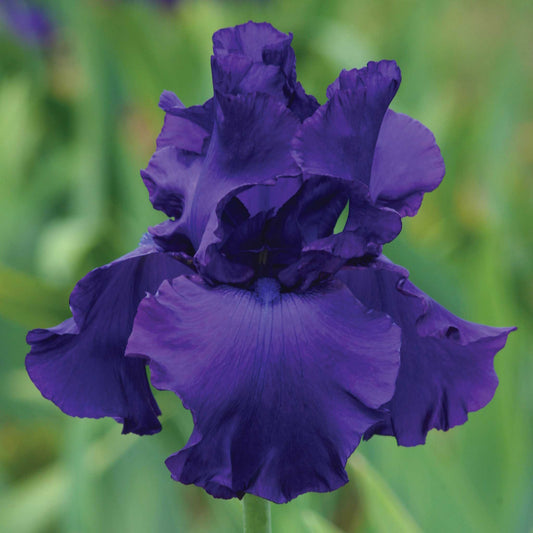
Bearded Iris - Titans Glory
Large blooms measure six inches tall and five inches acrossOut of StockBearded Iris - Titans Glory
Large blooms measure six inches tall and five inches acrossRegular price As Low As $13.69Regular priceUnit price per -
main-collection-product-grid
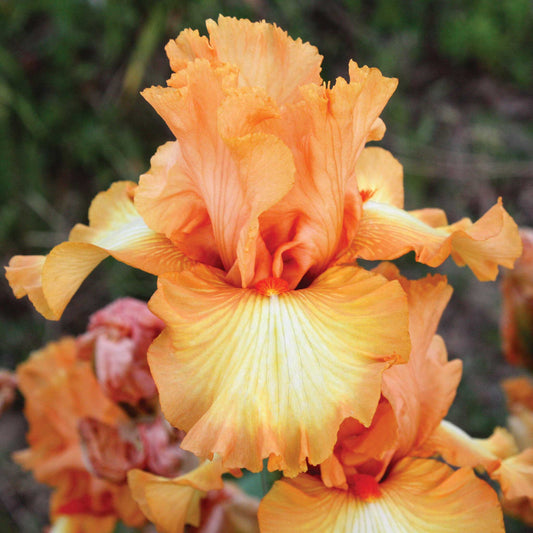
Bearded Iris - Great Balls of Fire
Highly ruffled in a flaming shade of orangeOut of StockBearded Iris - Great Balls of Fire
Highly ruffled in a flaming shade of orangeRegular price As Low As $13.69Regular priceUnit price per -
main-collection-product-grid
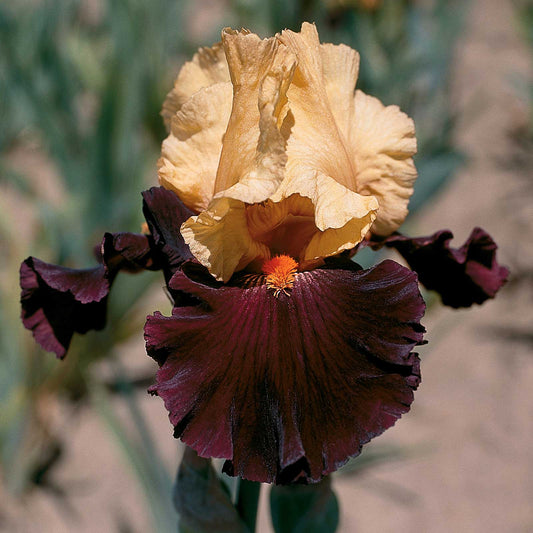
Bearded Iris - Idol
Blooms in spring, then again in late summer, early fallOut of StockBearded Iris - Idol
Blooms in spring, then again in late summer, early fallRegular price As Low As $13.69Regular priceUnit price per -
main-collection-product-grid
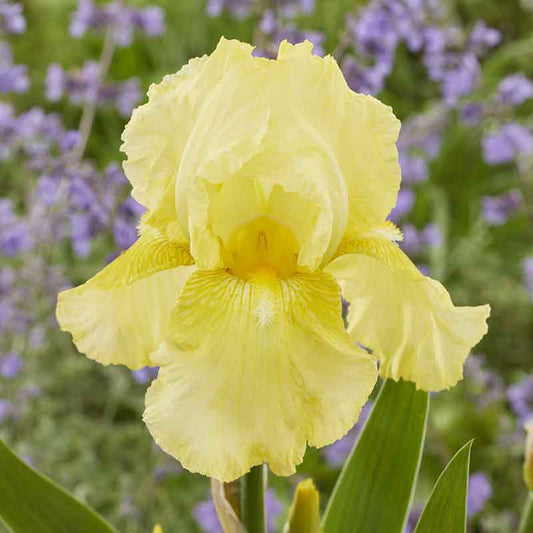
Re-Blooming Bearded Iris - Harvest of Memories
These canary yellow blooms last up to a week in the vase, but you'll never forget themOut of StockRe-Blooming Bearded Iris - Harvest of Memories
These canary yellow blooms last up to a week in the vase, but you'll never forget themRegular price As Low As $13.69Regular priceUnit price per
Growing iris flowers in your garden
- 50 various iris bulb varieties
- Perennial favorite for adding color to landscapes
- Blooms in spring/early summer with Reblooming Bearded Iris blooming again in the fall
- Easy to grow and drought, deer, and rabbit resistant
How to grow and care for irises
Irises are an incredibly popular perennial known for their iconic shape and characteristically showy flowers. The name comes from the Greek name for the goddess of the rainbow, indicating just how varied the colors are in the species. Not only are the endless colors stunning, but they also have striking, architectural, sword-like leaves that grace the garden before and after the blooms are present. Irises are easy to cultivate and grow well in almost any well-draining garden soil, and thus have become a favorite for many gardeners. Believe it or not, there are over 30,000 cultivars, though the majority of which are not commonly found for sale. That said, there are still hundreds to choose from, each with different colors and heights of leaves and stalks. Different irises bloom at various times throughout the season, depending on the variety. Mixing specimens from different groups will prolong your color display by a few extra weeks.
When to plant irises for the best results
Typically, irises are planted in the late summer. Select a spot in the yard that has plenty of well-draining soil. A pH level of a little less than seven is ideal. If necessary, do a soil test and amend the soil accordingly. Be sure to allow for plenty of space between each rhizome so that they do not become overcrowded. Prepare your garden bed by loosening the soil to a depth of 12 to 15 inches. Once loose, mix in a two to four inch layer of compost. For each rhizome, dig a shallow hole that is large enough to accommodate the rhizome, or clump of rhizomes. Each hole should be about four inches deep. Form a mound of soil in the center of the hole for the planting base. Place the rhizome on the mound-high enough so that the rhizome is slightly above the soil level. Gently spread the roots down the side of the mound. Fill the hole with soil, press gently, and then water well. Each grouping of irises should be placed about two feet apart.
Dividing iris rhizomes
Once the blooming has ended for the season, cut back the green foliage to about four to six inches. This ensures that the plant will not exert energy trying to maintain leaves throughout the winter. Every three to four years, divide the rhizomes.















